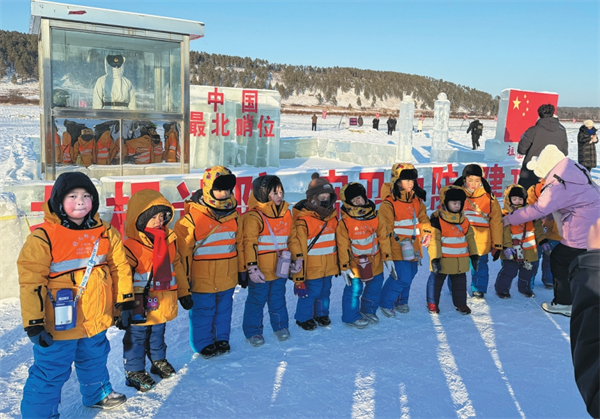Home>Biz updates
Robot makers positive amid rising labor costs
Updated : 2015-03-23
By Zhuan Ti ( China Daily )
A leading industry player, Harbin Boshi Automation Co Ltd aims to boost China's robot industry through independent innovation.
Formerly named Harbin Boshi Automation Equipment Co Ltd, the company was established in 1997.
After years of development, its market value has grown to more than 10 billion yuan ($1.6 billion), compared with a registered capital of 1.2 million yuan when it was founded. The firm's revenue hit 700 million yuan last year.
Its production lines of embedded palleting and packaging robots are widely used in industries including petrochemicals, coal, salt chemical engineering, fine chemicals, chemical fertilizers, food, port logistics, steel and environmental protection.
The company's major customers include big Chinese groups such as Sinopec, PetroChina, China Datang Corp and Baosteel.
Boshi's products have also entered international markets, with buyers including General Electric, DuPont, Bayer and Wacker.
The company uses special technology and materials to develop and produce robots capable of working in temperatures below 0 C, which have been used in Daqing oilfield.
The company has become a high-tech enterprise with several patented technologies and State-level products.
Boshi relies on the Harbin Institute and Technology as a strong R&D base and has grown by integrating production and research.
According to Qi Rubing, deputy chief engineer of the company, experts from the institute will be responsible for designing robots, and both the institute and the company are involved in the product development process.
Currently, R&D accounts for about 5 percent of the company's revenue.
According to Deng Xijun, president of Boshi, China's robot industry faces good development opportunities as labor prices have risen in recent years.
Deng added that the greatest challenge for China's robot industry was to lower the costs.
"The more Chinese enterprises use robots, the more experience we learn from the using process. That's how we improve the technologies and lower the costs for robots in China," Deng said.

Harbin ramps up childcare services
A new comprehensive service center for childcare in Harbin is expected to be finished by the end of the year.
-
Talent policies drive enterprise development in Harbin
Harbin's "30 New Talent Policies" represents an iterative upgrade to the talent policy system, helping attract and retain talent to bolster economic and social development.
-
Official website of 2025 Asian Winter Games goes live
Harbin, the host city of the 9th Asian Winter Games, has announced that the official website for the 2025 event has recently gone live.
-
Harbin launches measures to facilitate more foreign trade
In the first three quarters of 2023, the total import and export value of Heilongjiang province's goods trade hit 218.22 billion yuan.





